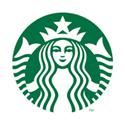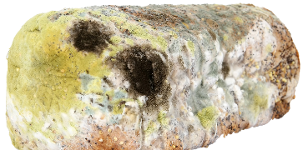Companies
Starbucks Establishes Framework For Building, Operating “Greener Stores”
 Starbucks Coffee Company announced a commitment to build and operate 10,000 “Greener Stores” around the world by 2025. The company will follow a “Starbucks Greener Stores” framework of comprehensive performance criteria for the new stores. The company also said it would audit all existing stores in the U.S. and Canada using the framework criteria, which will be shared with other retail businesses. The framework will be co-developed by experts, including World Wildlife Fund (WWF), and will be audited and verified by SCS Global Services, a third-party verification organization that also oversees Starbucks Coffee and Farmer Equity (CAFE) Practices. CEO Kevin Johnson said, “Simply put, sustainable coffee served sustainably is our aspiration."[Image Credit: © Starbucks Corporation]
Starbucks Coffee Company announced a commitment to build and operate 10,000 “Greener Stores” around the world by 2025. The company will follow a “Starbucks Greener Stores” framework of comprehensive performance criteria for the new stores. The company also said it would audit all existing stores in the U.S. and Canada using the framework criteria, which will be shared with other retail businesses. The framework will be co-developed by experts, including World Wildlife Fund (WWF), and will be audited and verified by SCS Global Services, a third-party verification organization that also oversees Starbucks Coffee and Farmer Equity (CAFE) Practices. CEO Kevin Johnson said, “Simply put, sustainable coffee served sustainably is our aspiration."[Image Credit: © Starbucks Corporation]
New Facility In Upstate N.Y. Will Reclaim, Convert Food Scraps Into Energy
Arkansas’ Food Companies Make Progress In Battle To Cut Food Waste
 Food waste in manufacturing and packaging costs corporations $2 billion each year – in addition to $15 billion for farmers – while dumping 52 million tons of waste into landfills. In the state of Arkansas, food and beverage industry companies are taking steps to eradicate food waste. Tyson Foods this summer launched bite-sized chicken crisps, dubbed ¡Yappah!, made with upcycled chicken breast, rescued carrots, and celery puree from juicing, or malted barley from beer brewing. Walmart has introduced a technology that focuses on tracking the freshness of produce as it travels from farm to wholesaler to retailer to table. Eden’s sensors measure and report temperature, moisture and metabolite data used to assess carton-level freshness and shelf life based on FDA standards. And ConAgra Brands says it achieved an 81.7 percent landfill diversion rate in 2017 corporate-wide.
Food waste in manufacturing and packaging costs corporations $2 billion each year – in addition to $15 billion for farmers – while dumping 52 million tons of waste into landfills. In the state of Arkansas, food and beverage industry companies are taking steps to eradicate food waste. Tyson Foods this summer launched bite-sized chicken crisps, dubbed ¡Yappah!, made with upcycled chicken breast, rescued carrots, and celery puree from juicing, or malted barley from beer brewing. Walmart has introduced a technology that focuses on tracking the freshness of produce as it travels from farm to wholesaler to retailer to table. Eden’s sensors measure and report temperature, moisture and metabolite data used to assess carton-level freshness and shelf life based on FDA standards. And ConAgra Brands says it achieved an 81.7 percent landfill diversion rate in 2017 corporate-wide.San Francisco Chef Plans Food Waste-Focused Restaurant
 Although there have been restaurant pop-ups focused on food waste, no one in the U.S. with a fine dining background has opened a restaurant devoted to food waste. But San Francisco chef Nick Balla, who has a reputation for creating delicious meals from surplus foods, is toying with the idea. He recently shared his business plan during the San Francisco Global Climate Action Summit at an event focused on reducing food waste. Balla says the restaurant he launches, possibly in the Bayview neighborhood, will have to have room for equipment needed to juice, dehydrate and jar the tons of food he will process. There will also be a bakery for incorporating leftovers into bread. He predicts that embracing surplus and ugly food will soon move from buzzword status to a national trend.[Image Credit: © Couleur from Pixabay]
Although there have been restaurant pop-ups focused on food waste, no one in the U.S. with a fine dining background has opened a restaurant devoted to food waste. But San Francisco chef Nick Balla, who has a reputation for creating delicious meals from surplus foods, is toying with the idea. He recently shared his business plan during the San Francisco Global Climate Action Summit at an event focused on reducing food waste. Balla says the restaurant he launches, possibly in the Bayview neighborhood, will have to have room for equipment needed to juice, dehydrate and jar the tons of food he will process. There will also be a bakery for incorporating leftovers into bread. He predicts that embracing surplus and ugly food will soon move from buzzword status to a national trend.[Image Credit: © Couleur from Pixabay]“Waste Bread” Incorporates Unsold Sourdough Loaves Into New Ones
 A British bakery has developed what it calls Waste Bread, made by crushing unsold loaves, rolls, and bloomers (London-style white bread) to make a porridge. A new batch of sourdough then incorporates the porridge. Gail’s Bakery’s 43 sites in London, Oxford, and Brighton will introduce the sourdough in October at a price of $5.50 a loaf. The co-founder of Gail’s said the process took nine months to perfect because it is so complicated, but it is worth the effort because it continues the company’s commitment to sustainability and reduction of food waste.[Image Credit: © GAIL’s Limited]
A British bakery has developed what it calls Waste Bread, made by crushing unsold loaves, rolls, and bloomers (London-style white bread) to make a porridge. A new batch of sourdough then incorporates the porridge. Gail’s Bakery’s 43 sites in London, Oxford, and Brighton will introduce the sourdough in October at a price of $5.50 a loaf. The co-founder of Gail’s said the process took nine months to perfect because it is so complicated, but it is worth the effort because it continues the company’s commitment to sustainability and reduction of food waste.[Image Credit: © GAIL’s Limited]British Grocers, Producers, Hotels Commit To Food Waste Reduction Roadmap
Market News
Asia-Pacific Is Ramping Up Efforts To Reduce Single-Use Plastic
.jpg&width=125&height=125) There is a growing awareness of single-use plastic in the Asia-Pacific region, with governments and companies acting to reduce the volume of plastic waste. However, there are also concerns that too little is being done, and too slowly. In India, PepsiCo has committed to using 100% compostable, plant-based packaging for some of its snack brands, and Nestle plans globally to make 100% of its packaging either recyclable or reusable by 2025. Unilever has a similar target. In South Korea, supermarket chains Lotte Market, E-Mart, Mega Mart, Homeplus and Hanaro Mart, announced plans to reduce the number plastic shopping bags and encourage the use of reusable ones. In Singapore, a new zero-waste store opened in May 2018. Unpackt uses no packaging, inviting customers to bring their own containers. Governments too are acting. In India, the state of Maharastra introduced a ban on single-use plastics, and the whole country aims to be free of single-use plastics by 2022. A senate inquiry in Australia has recommended a national ban on single-use plastics, following state bans of single-use bags in Victoria and New South Wales. [Image Credit: © Unpackt]
There is a growing awareness of single-use plastic in the Asia-Pacific region, with governments and companies acting to reduce the volume of plastic waste. However, there are also concerns that too little is being done, and too slowly. In India, PepsiCo has committed to using 100% compostable, plant-based packaging for some of its snack brands, and Nestle plans globally to make 100% of its packaging either recyclable or reusable by 2025. Unilever has a similar target. In South Korea, supermarket chains Lotte Market, E-Mart, Mega Mart, Homeplus and Hanaro Mart, announced plans to reduce the number plastic shopping bags and encourage the use of reusable ones. In Singapore, a new zero-waste store opened in May 2018. Unpackt uses no packaging, inviting customers to bring their own containers. Governments too are acting. In India, the state of Maharastra introduced a ban on single-use plastics, and the whole country aims to be free of single-use plastics by 2022. A senate inquiry in Australia has recommended a national ban on single-use plastics, following state bans of single-use bags in Victoria and New South Wales. [Image Credit: © Unpackt]
Copyright 2026 Business360, Inc.

